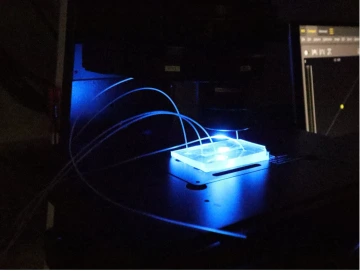Integrated BioDesign Lab

Organs-on-Chips
Shang Song lab at University of Arizona focuses on integrating advanced engineering design methods and cell therapies to create new microphysiological platforms and regenerative therapies. We are fundamentally interested in designing new “experiences” for cells to change their behavior, and use this knowledge to develop better therapeutics and treatment methods for future patient treatment.
Why our lab?
Biomedical engineering encompasses a wide range of biological scale: from molecular and subcellular level to cell, tissue, organ, and whole organism. Dr. Shang Song’s research work span different biological scales: from manipulating cellular microenvironment, to building tissue and organ constructs, and evaluating their regenerative and translational potential in disease-mimicking models. The direct experience working at different length scale and disease-mimicking models help us recognize unique challenges and needs in bridging the gap for translating new discoveries to improve human health.
Why now?
Our lab takes advantage of the convergence between modern advances in engineering methodologies and maturing understanding of human cells and tissues to develop new organs-on-chips platforms and regenerative strategies. By working at the interface of these technologies, we can form innovative ideas to achieve a greater impact on clinical needs and human health.

